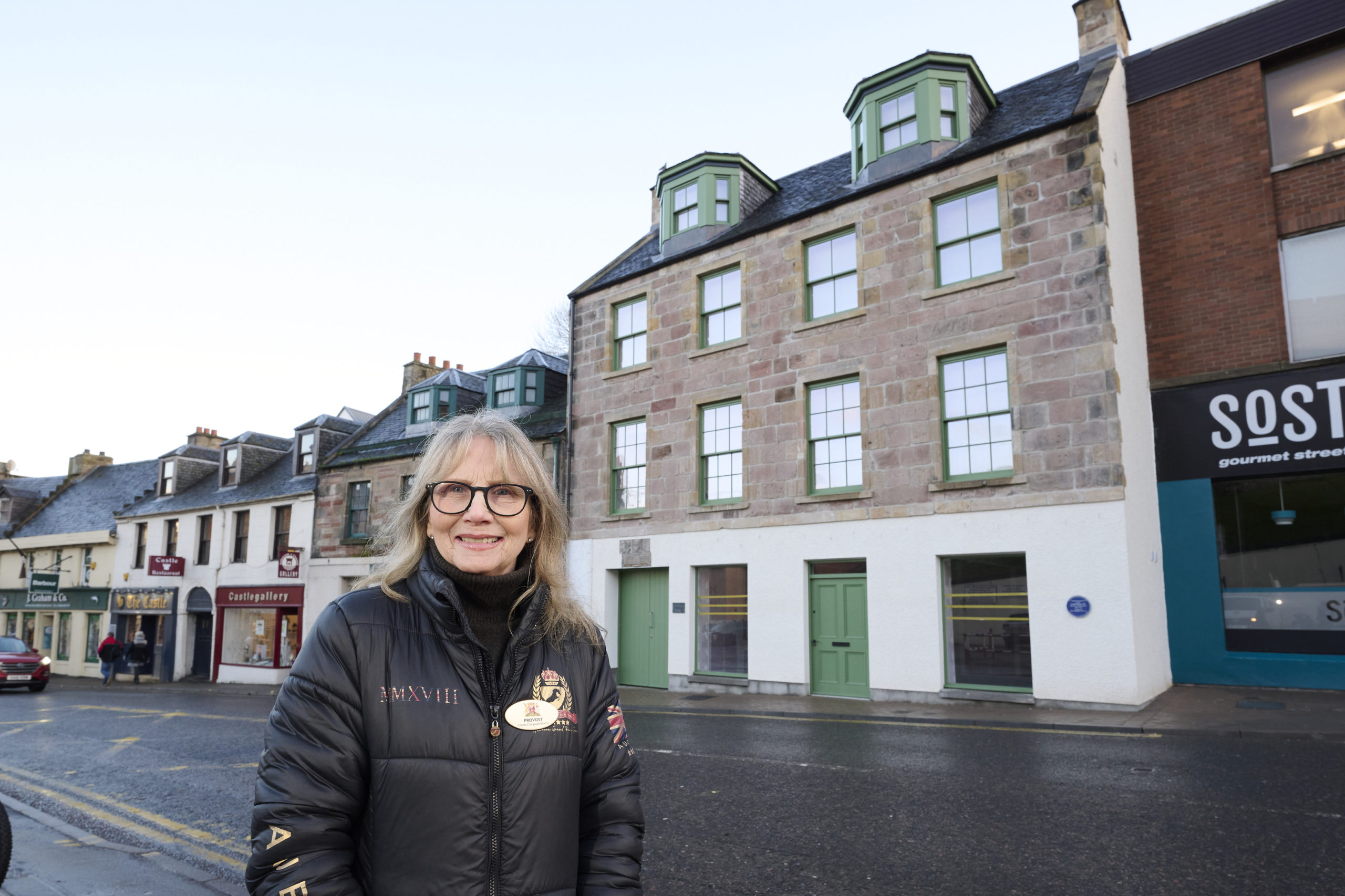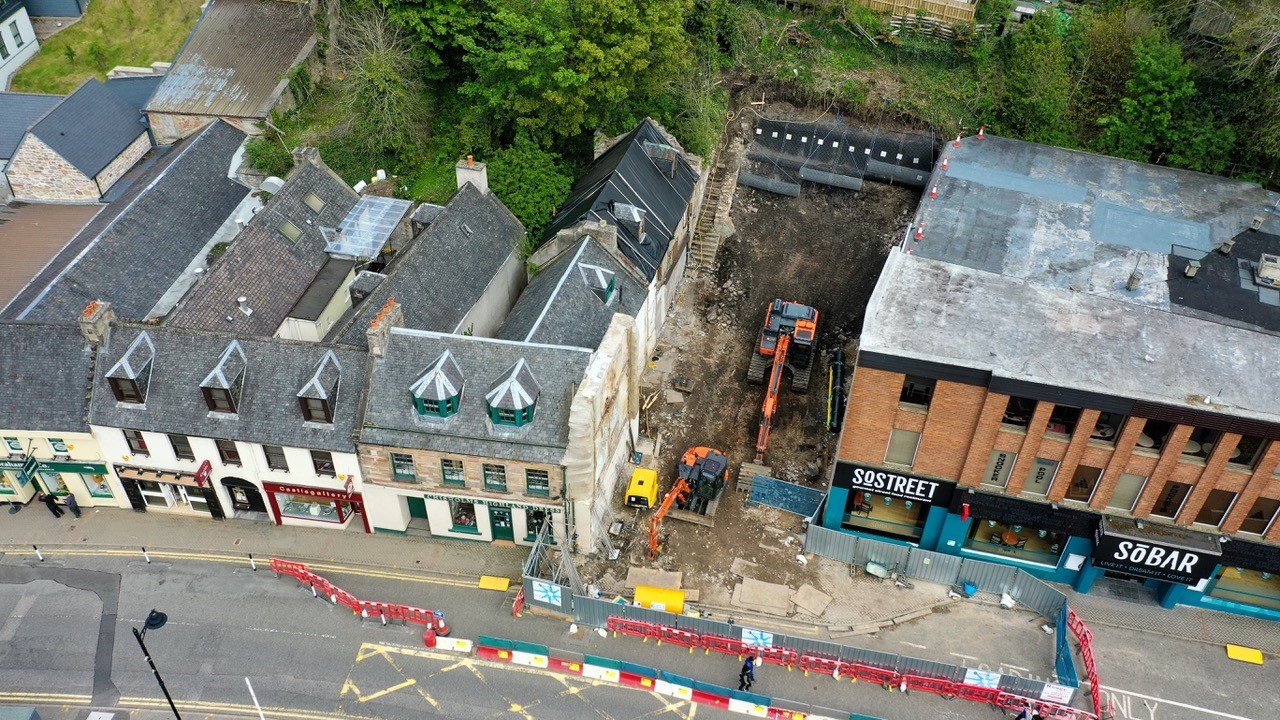
THE history of Inverness’ 51-53 Castle Street is to be celebrated following the completion of the ‘sympathetic restoration’ of the building to create eight new homes and a commercial unit.
Thanks to funding from the Highland Council, city region deal, and a £1.2 million Scottish Government partnership for regeneration grant, the reinstatement of Merchant House on Castle Street has ‘revitalised’ a building that had run into a state of ‘disrepair’ over the last decade.
The B-listed building forms part of the historic Castle Street frontage, which overlooks Inverness Castle. As one of the oldest Merchant’s Houses in Inverness, 53 Castle Street was constructed in the early 18th century and was home to a coal merchant who imported coal for the British Government at Fort Augustus.
It was then home to local businessman Colin MacKintosh’s fruit shop. His daughter, Elizabeth, went on to become a successful crime writer. Authoring her works under a pseudonym of Josephine Tey, a blue plaque commemorating her has been installed on the front of the re-developed Castle Street building following a campaign by local writer, Jennifer Morag Henderson.

More latterly, the building was used as part of the Duncan Chisholm & Sons kilt shop, until the firm consolidated its space on Castle Street into smaller units.
To the rear of Merchant House lies a courtyard once used by families living in Castle Street homes. Contained within the courtyard remains a historic gateway with an entrance to a staircase leading to Ardconnal Terrace.
A historic plaque was built into a lintel above the staircase, with the phrase ‘FeirGod, dvtnot’ (Fear God, doubt not), etched into the stonework.
Highland Council housing and property committee chair and provost of Inverness, councillor Glynis Sinclair, said, “53 Castle Street is steeped in history, and it was fitting that this iconic building was restored to its former glory to allow for its legacy to continue for generations to come. The sympathetic restoration, design and attention to detail has undoubtedly brought back to life a key historic building to the city of Inverness and is a prime example of how old historic buildings can and should be repurposed to create beautiful new homes and commercial spaces.”
Initially, the building was stabilised and protected through the work of the council’s building standards service before redevelopment process began. Completed by Inverness-based contractor Compass Building & Construction Services, the reimagined Merchant House has ‘sensitively’ retained such historic features.
A ‘first-of-its-kind’ approach to re-development in Inverness, this includes conservation of the staircase, where a new modern-day courtyard with communal space and recycling points has been built around. The plaque was removed and relocated to the doorway leading to the new courtyard space.
The original façade stonework was also removed brick by brick, placed into storage, and then re-built in precisely the same format to ensure the original building is preserved for generations to come. The Highland Council said the unique nature of the building works has also helped to maintain the original character of the building, in keeping with the wider streetscape and Inverness Castle. The slate tiles are also original.
In total, construction works have taken almost two years to finish, highlighting the timely nature of the build to ensure that the brickwork was completed exactly like-for-like.
Merchant House now features a mix of seven one-bed flats and one two-bed penthouse apartment, helping to address demand for high-quality rental opportunities in Inverness. Developed and managed by local developer, HHA, the re-development has been described as a ‘prime example’ of upholding a building’s legacy to create a considered future.









